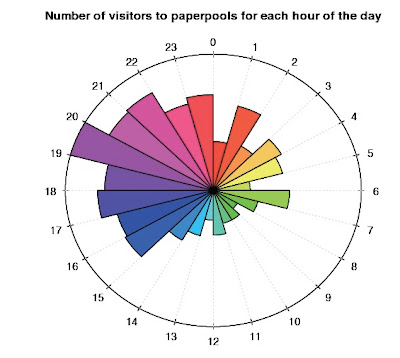Fellow Christians,
Now that Sister DeWitt has gone amongst the cloven-hoofed Mohammedan horde, to convert their numbers by main force should the light of reason fail, it is up to her brothers and sisters in Christ to continue preaching the Good News. It is with profound humility that I answer the call of true Christian service and undertake this mission by offering this moral tale of a teacher and his Joynob.Yours in Christ,
Fr. Francis Xavier Mithridates
Last year, about this time. I was teaching Introduction to Prose Fiction. As though I were free.
On the first day, I read through the list of names on the attendance sheet and came to a difficult one: Joynob.
Joynob came to the rescue. Seeing that I had difficulty pronouncing her last name - I read last names first, I don't know why; probably a stodgy distancing technique - she told me to call her Joy.
Joy. That's easy. I can manage Joy.
Still, I thought this pretty amusing. I would tell my friends about this name and they would say, So what? and, I don't get it. And I'd say: Joynob? JOYNOB? This doesn't suggest anything to you? No.
Awkward; immaturity reconfirmed.
Anyway, weeks go by. Imagine a mild autumnal montage. Images fade in and out; music plays, violins, cellos; pages turn, leaves fall; shots of me trying to find slaves on the Internet, to buy drugs from the homeless dude on my corner, to not burn my landlady alive. Typical fall.
I notice that Joynob is good friends with another student. Always chatting, laughing. It doesn't bother me at first. But gradually it does - I stop lecturing, give them looks, square my jaw, ask them to please stop.
One day they're at it again, talking and tittering. Suddenly there's a loud slapping sound. Sort of like a giant bag of meat had been slung onto linoleum. I'm just about ready to yell - which I never do in my college-level classes - and I notice that Joynob's got her head on the desk.
Friend o' Joynob: Don't get mad.
Me: What? Why would I get angry? What's the matter?
FoJ: She isn't drunk.
Me: OK. What's the matter then?
FoJ: She'll be OK in a minute. She isn't on drugs or anything.
Me: Uh, OK. But WHAT'S the MATTER?
FoJ: She has this rare medical thing.
Me: Like narcolepsy?
FoJ: No it's--you're going to be freaked out when she wakes up because she heaves and gasps for air for a while.
Me: . . .
FoJ: It's not narcolepsy. It's like vasobagel or something.
I've never heard of bagels having such an adverse effect on an undergraduate.
I think she means vasovagal, but this isn't the time to hairsplit.
FoJ: When she wakes up you're going to freak out. But just act normal. Don't let her know you know because she'll get embarrassed. And you're not supposed to move her either, you just need to let her be.
Me: Is she breathing? We need to call the EMT. Now.
FoJ: Trust me, this happens every day.
I start to hear echoing snippets, at this point, of the prosecuting attorney's opening and closing statements: Negligent-gent-gent. Callous-llous-llous. Stupid-upid-upid. Evil-l-l-l. Ten to fifteen years-ears-ear. Full extent of the law-aw-aw. Negligent-gent-ent-nt-t-t. Prison-ison-ison-son-son-on.
That does it.
Me: No, I'm sorry, I'm calling the EMT.I call the medical center. They say they will be here in ten minutes. Fine.
Then I think: What are they on bicycles? Ten minutes??
FoJ: Please please please just act normal. Just continue the class.
Me: Uh, OK, class. Sorry, but uhhh. OK. So Frederick Douglass. Right. Uh. We were talking about how he represents the passage of, uh, time. Right. Soooooo.
[Silence]
Me: I'm sorry. I can't do this. I need to do something.
FoJ: NO! You can't move her, it's too dangerous.
Me: How does Douglass represent the slave's experience of time in this passage? How --
At this point, Joynob suddenly comes out of her brief coma. She sounds as if she is hyperventilating or suffocating. Whichever one sounds like someone trying to breathe gravy. There I am asking the class about word-choice and such against background audio of someone being garroted. Lucca Brazzi's final moments. Instant dada.
I tell her friend that this is ridiculous, that I need to do something, but she insists I do nothing. Joynob is still in a state of unawareness, a sort of twilight state. She's going to be very embarrassed if she wakes up and sees that all our attention is on her. So I go on, pausing every once in a while to accommodate a particularly loud choking sound, until she fully regains consciousness. She shivers and cries so I go over and try to make her feel less afraid and less embarrassed. Joynob's friend looks at me disapprovingly.
EMT arrives.
Me: I called you twenty minutes ago.
EMT Guy: There was a line.
I don't say: A line where?
They ask her some questions and take her off to the hospital.
Coda:
In the all walnut-wood office of the Head of Undergraduate Studies. The HUS looks like an animated bag of flour. He doesn't have any knuckles. He's perpetually smiling, even when listening to unpleasant news. It's as if his permanently plastered smile was some kind of punishment, some kind of spell he had to suffer.
I tell the story of Joynob to his sympathetic face.
HUS's first response: Well did she disrupt the class?
Here's what I don't say. I don't say: Well, uh, a.) obviously: have you been listening? and b.) that's not the POINT, you knuckleless baloney-sausage! You blotterbrained cankle, you!
It might seem superficial and indeed fat-ist to hold someone accountable for not having any discernible bone-articulation at the base of the fingers, but it seems to me that, in interactions between adult human beings, both parties should at least have knuckles. In the rapidly thinning category of things that separate infants from adults, knuckles are an imperative in my view.
I say: Yes.
HUS: Well, we can't have this. Did she show you a doctor's note?
I don't say: You mean when she was passed out or when she was choking?
I don't say: You dumb smiley-faced abortion, you.
I say: No.
HUS: Well [every sentence, it soon becomes clear to me, begins with Well; this is probably the other part of his punishment] you just let me handle this: I'll take care of it from here. [Smile, or rather an intensification of already smiling face, a further warping of the fool's mask; awkward silence]
HUS: Oh, by the way. Forgot to mention. How's she doing?


